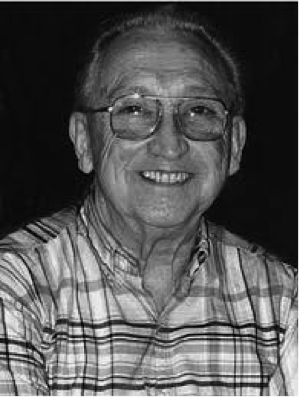This is part of a series remembering and honoring evaluation pioneers leading up to Memorial Day in the USA (May 30).
My name is Jennifer Greene, a former AEA President and former co-editor of New Directions for Evaluation. Egon Guba, as both a scholar and a person, left an enduring transformative legacy to the field of evaluation. As a scholar, Egon Guba was a brilliant thinker. At a revolutionary moment in the evolution of both social science inquiry and evaluation theory and practice (the 1960s and 1970s), he was among the leaders of the charge for paradigm expansion. Most often in partnership with his wife, Yvonna Lincoln, he toiled tirelessly to champion a constructivist, qualitative approach to understanding human phenomena. As a person, Egon Guba was a gracious and generous man. He offered critically important mentorship to many aspiring evaluators, including me, and was a pivotal influence on my own development as a scholar.
Pioneering and enduring contributions:

Egon Guba wrote multiple articles and books, gave innumerable talks, and became one of constructivist, qualitative evaluation’s most eloquent and persuasive spokespersons. His evaluation legacy is significantly deep and wide having contributed to a transformative methodological expansion of the evaluation field, as part of his championship of constructivist thinking and qualitative methodologies. Following on from Bob Stake’s initial advancement of a responsive versus preordinate approach to evaluation and a case study versus experimentalist methodology for evaluation, Egon took up the reins of activist advocacy for these ideas.
Specifically, with Yvonna Lincoln, Egon developed “fourth-generation evaluation” which foregrounded constructivist philosophy and qualitative methodology, but also advanced a bold, politically engaged role for evaluation. Moving beyond the first three generations of evaluation’s role—measurement, description, and judgment—in fourth-generation evaluation, the evaluator surfaces the relevant perspectives, interests, and value claims of diverse stakeholders and helps them negotiate their diverse standpoints toward greater agreement about priorities. Guba and Lincoln explicitly situated evaluation as a values-committed, emancipatory practice, in contrast to most prior evaluation theories, which either claimed value neutrality or value pluralism. This explicit advocacy for particular values in evaluation was a highly significant contribution to the continuing evolution of evaluation theory and practice—perhaps even more significant than Egon’s championship of a constructivist worldview and qualitative methodology.
Resources:
Greene, J.C. (2008). Memories of a novice, learning from a master. American Journal of Evaluation, 29(3):322-324.
Guba, E.G. (1987). What have we learned about naturalistic evaluation? American Journal of Evaluation, 8(1): 23-43.
Guba, E.G. & Lincoln, Y.S. (1989). Fourth generation evaluation. Sage.
Lincoln, Y.S. & Guba, E.G. (1985). Naturalistic inquiry. Sage.
Patton, M.Q., Schwandt, T.A., Stake, R., Stufflebeam, D. (2008). Tributes to Egon Guba,
American Journal of Evaluation, 29(3): 328-329
The American Evaluation Association is celebrating Memorial Week in Evaluation: Remembering and Honoring Evaluation’s Pioneers. The contributions this week are remembrances of evaluation pioneers who made enduring contributions to our field. Do you have questions, concerns, kudos, or content to extend this aea365 contribution? Please add them in the comments section for this post on the aea365 webpage so that we may enrich our community of practice. Would you like to submit an aea365 Tip? Please send a note of interest to aea365@eval.org . aea365 is sponsored by the American Evaluation Association and provides a Tip-a-Day by and for evaluators.
